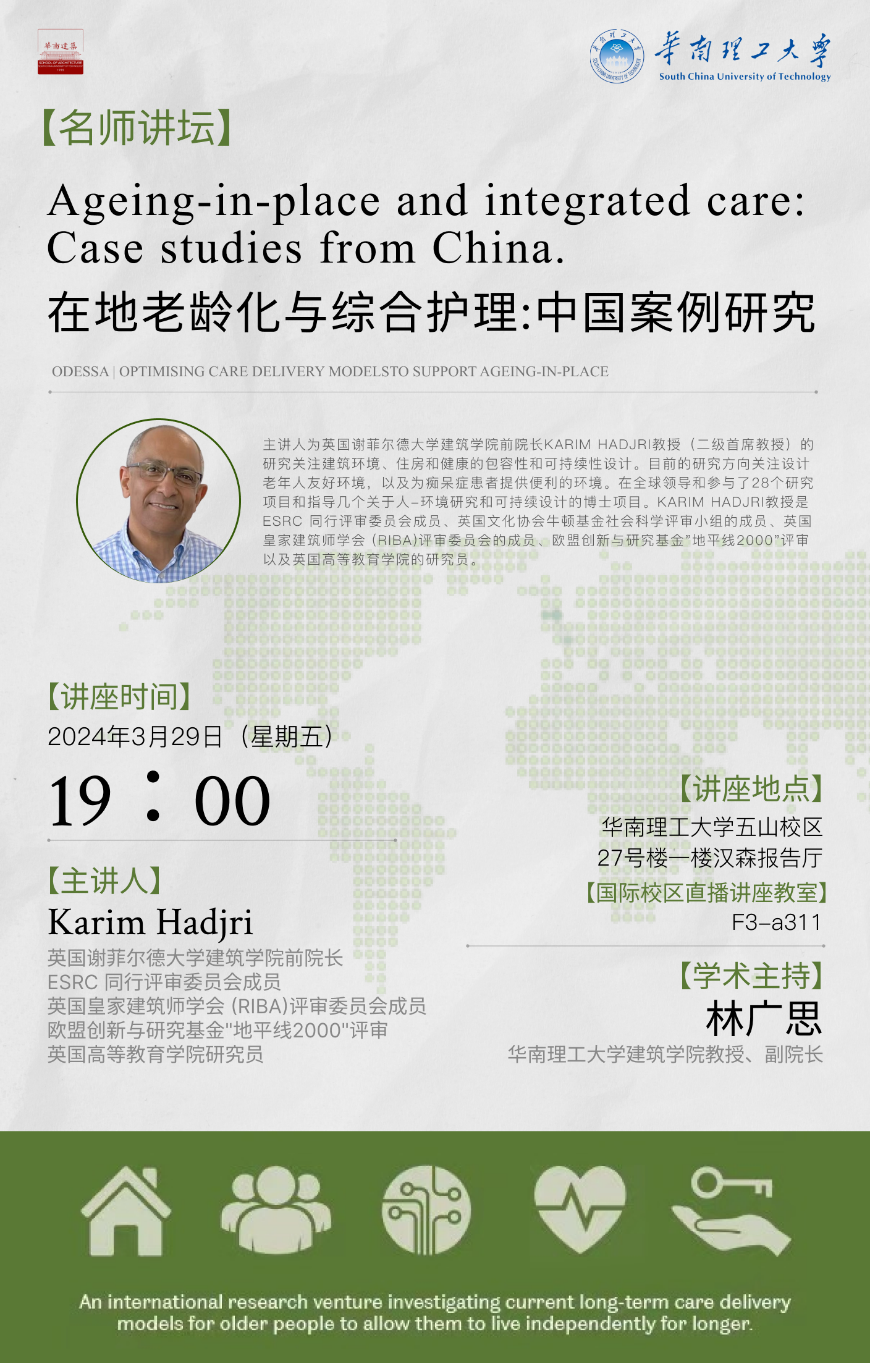Title: Ageing in place and integrated care: Case studies from China
Speaker: Karim Hadjri
Time: Friday, March, 29, 2024, 19:00
Venue: Building No.27, 1F, Multifunctional Room, SCUT
International Campus live lecture room: F3-a311
About speaker:
Karim is an architect with a Master of Philosophy and a Doctor of Philosophy in housing studies completed at the Joint Centre for Urban Design at Oxford Brookes University, Oxford, UK.
Karim's research is concerned with inclusive and sustainable design of the built environment, housing and health. His current research is concerned with the challenges of designing age-friendly environments, as well as enabling environments particularly for people with dementia. He has led and participated in 30 research projects worldwide, secured over £2m in competitive research grants, and published over 100 outputs. He currently supervises several PhD projects on people-environment studies and sustainable design.
He is a member of the UK Research and Innovation Economic and Social Research Council peer review college, a member of the Newton Fund Social Sciences Review Panel under the British Council, a member of the Royal Institute of British Architects (RIBA) validation board, and a fellow of the UK Higher Education Academy. He is also a reviewer for various UK and European funding agencies, and a referee for academic promotion to various universities worldwide.
He has led large academic units and research groups and managed a self-funded research centre. He was the Head of School of Architecture at the University of Sheffield from 2017 to 2022.
Summary:
The UK ESRC funded ODESSA project under the EU-China programme ‘Understanding Population Change’ explored how ageing-in-place can be supported, allowing ourselves, our parents and grandparents to age well and with dignity, without having to move out of their own homes and communities. This lecture shows the experience of engaging with a diverse stakeholder group in three countries in order to explore ageing-in-place and integrated care for an ageing population, which is aimed at kick-starting new ways of adapting homes to avoid older people going into residential care as well as making it easier for them to access public services. The research used inclusive approaches to engage with the views, experiences and needs of the stakeholders including older people. This helped the researchers to identify the challenges and opportunities of ageing well at home and provided an insight into the special design considerations required to design barrier-free, comfortable environments that are technologically enhanced to encourage better health, safety, independence, and a sense of community.


